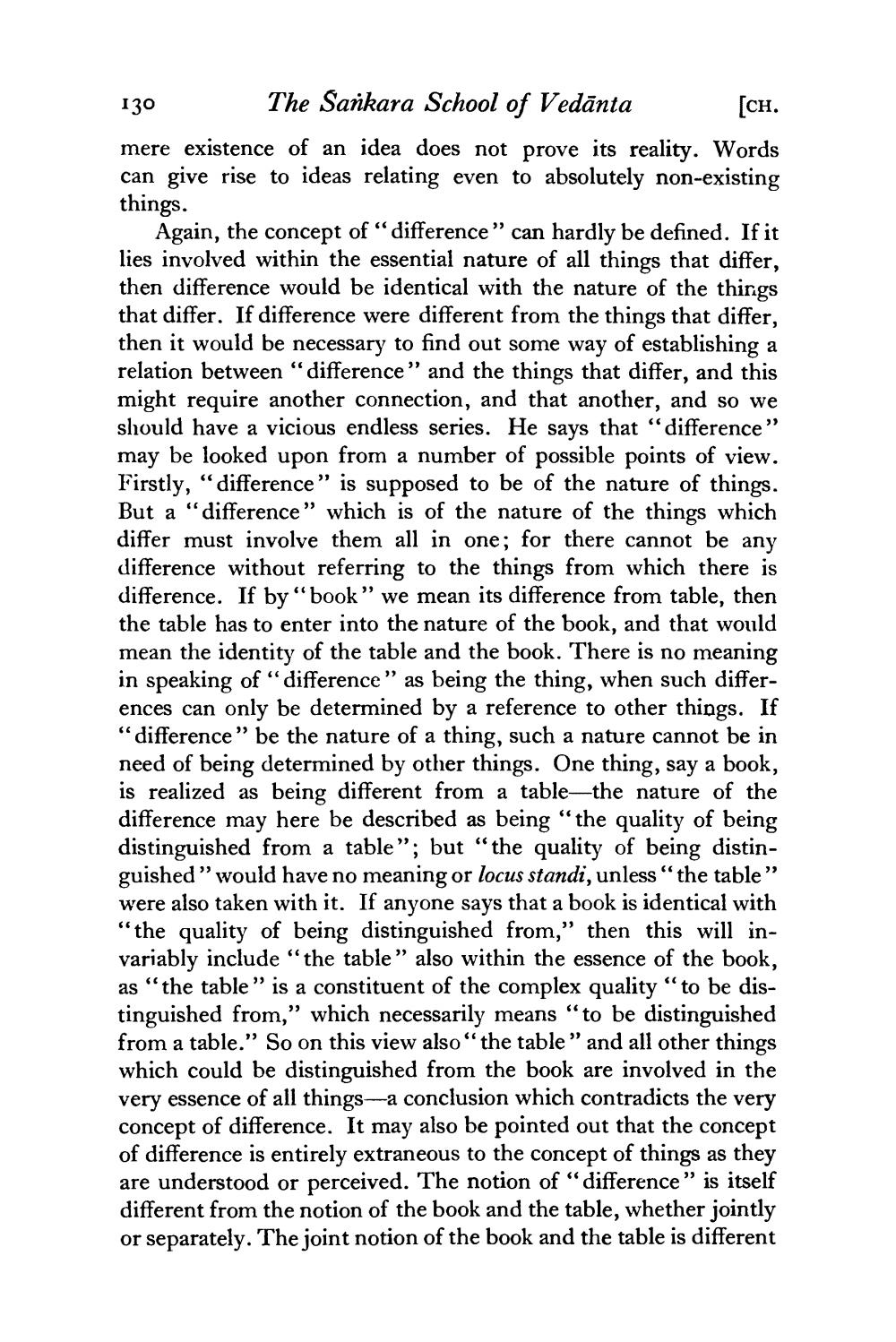________________
130
The Sankara School of Vedānta [CH. mere existence of an idea does not prove its reality. Words can give rise to ideas relating even to absolutely non-existing things.
Again, the concept of “difference" can hardly be defined. If it lies involved within the essential nature of all things that differ, then difference would be identical with the nature of the things that differ. If difference were different from the things that differ, then it would be necessary to find out some way of establishing a relation between “difference" and the things that differ, and this might require another connection, and that another, and so we should have a vicious endless series. He says that “difference" may be looked upon from a number of possible points of view. Firstly, “difference” is supposed to be of the nature of things. But a “difference” which is of the nature of the things which differ must involve them all in one; for there cannot be any difference without referring to the things from which there is difference. If by "book" we mean its difference from table, then the table has to enter into the nature of the book, and that would mean the identity of the table and the book. There is no meaning in speaking of “difference" as being the thing, when such differences can only be determined by a reference to other things. If “difference" be the nature of a thing, such a nature cannot be in need of being determined by other things. One thing, say a book, is realized as being different from a table—the nature of the difference may here be described as being “the quality of being distinguished from a table”; but "the quality of being distinguished” would have no meaning or locus standi, unless the table” were also taken with it. If anyone says that a book is identical with “the quality of being distinguished from," then this will invariably include "the table” also within the essence of the book, as "the table" is a constituent of the complex quality “to be distinguished from,” which necessarily means "to be distinguished from a table." So on this view also "the table” and all other things which could be distinguished from the book are involved in the very essence of all things--a conclusion which contradicts the very concept of difference. It may also be pointed out that the concept of difference is entirely extraneous to the concept of things as they are understood or perceived. The notion of " difference" is itself different from the notion of the book and the table, whether jointly or separately. The joint notion of the book and the table is different




